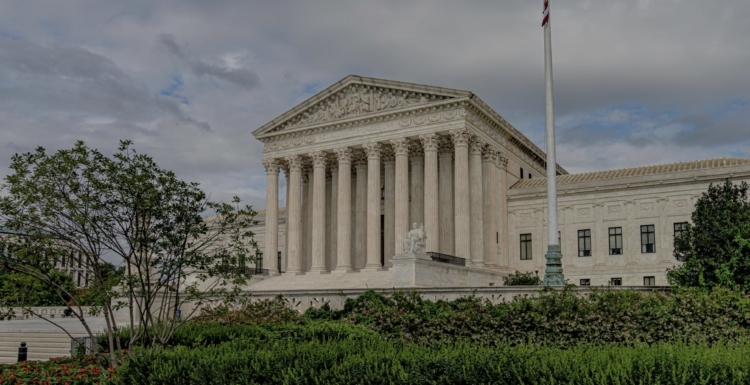 Reading Time: 3 minutes
Reading Time: 3 minutes
In July 2022, the U.S. Department of Health and Human Services (HHS) issued guidance to hospitals to the effect that they must provide an abortion whenever abortion is the stabilizing treatment necessary to resolve an emergency medical condition. The guidance explicitly preempted any state law forbidding abortion.
Join others crying out to the Lord day and night.
Today, U.S. Supreme Court justices heard, with some skepticism, the attempt of the U.S. solicitor general (herein called “the General”) to defend this new take on the decades-old Emergency Medical Treatment and Labor Act (EMTALA). The case is Idaho v. United States, because Idaho’s law forbidding abortion except to save the life of the mother appears in conflict with the more permissive HHS guidance. A similar case initiated by the state of Texas could be impacted.
Here are highlights of the arguments, which lasted over an hour and a half.
- The more liberal justices, such as Kagan and Sotomayor, exhibited acute concern for patients who might, due to Idaho’s law, miss out on treatment, resulting in “tragic” loss of “reproductive” organs, such as in hysterectomies and “scarring” (apparently not finding such losses tragic if they happen to minors upon the secret advice of school counselors or Planned Parenthood staff who “help” kids transition to another sex).
- Justice Alito noted EMTALA’s use of the words “unborn child,” reminding us of our duty to two patients in the scenario, not just the mother.
- The General assured the court that Idaho doctors have conscience protection that would allow them not to participate in abortions. However, when pressed, she admitted that the hospital would have to provide staffing at all times for abortion or it would be “out of compliance” with federal funding laws such as with Medicare.
- Justices Thomas and Alito questioned whether there was any precedent that allowed an agreement between a private entity (such as a hospital) and the government (such as with Medicare funding) to defeat state law. They seemed unsatisfied with the General’s efforts to find parallels, also indicating that the guidance improperly intrudes on the practice of medicine.
- Idaho argued that there really isn’t much daylight between its law and the guidance, since it does allow a pregnant patient to have an abortion where her life is jeopardized without one. Justices Gorsuch and Kavanaugh said the U.S. was overstating the number of situations in which abortion would be forbidden under Idaho law. For example, in cases of ectopic pregnancy or pre-eclampsia, Idaho would permit an abortion.
- When questioned about whether “mental health” would be protected under the guidance, the General said no, which is an important concession if the guidance is allowed to stand.
- Justice Barrett asked whether, under a different “administration,” abortion could be outlawed by a future HHS guidance. (This undesirable whipsaw effect happens when one administration acts very expansively and the next one acts to correct that.) The General reluctantly said yes, if the regulation was otherwise valid.
- Some justices expressed hesitance to find an enumerated power in the spending clause to interfere with states’ sovereignty in matters of health and the practice of medicine. This may sound technical, but it could dispose of the whole case.
Not only is the case crucial to the scenarios discussed, but if the federal government wins, EMTALA could well dictate what happens with an unconscious patient coming into the emergency room — she could be given an abortion whether she actually wants it or not. There are still women who will sacrifice their lives for their children, such as an OB-GYN doctor in Oklahoma who decided to forego the lifesaving chemo she herself needed because it would endanger her child in utero.
Prayers are needed that the court would wisely weigh these arguments involving federal versus state powers and the best interests of mothers and babies.
Share your prayers here for the Supreme Court as it decides on yet another critical abortion case.
Leah Farish, an attorney, is host of the Conversation Balloons podcast, available without app or subscription on Apple Podcasts, Amazon Music, and YouTube, and at LeahFarish.com. Leah is also author of “You Shall Not Murder — Crying Out for the Outcast,” in The Decalogue Project. Photo Credit: Adam Szuscik on Unsplash.

